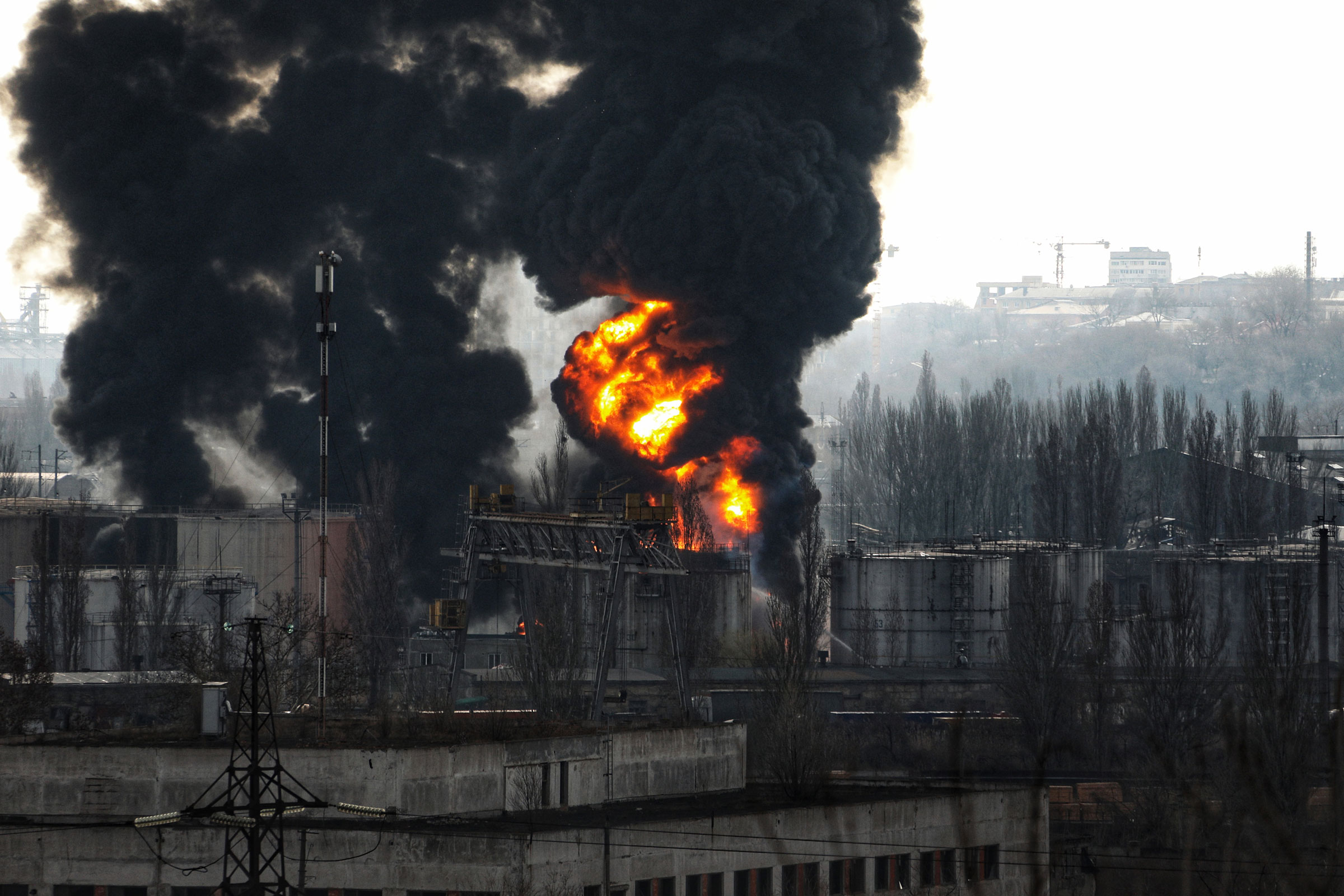
Russian military forces have yet to notify the Biden Administration about annual large-scale nuclear war games that are expected to take place this month.
The Grom exercise usually begins each year in late October and involves submarines, warplanes and ballistic missiles. Moscow is required to inform the U.S. about expected missile launches under the New Strategic Arms Reduction Treaty.
“We do know that, based on past precedent, the exercise likely will happen soon but no notifications at this time,” U.S. Defense Department spokesman Brigadier General Pat Ryder told reporters Thursday at the Pentagon.
The lack of information about the exercise is concerning amid rising tensions over the conflict in Ukraine, where Russian President Vladimir Putin has repeatedly raised the specter of nuclear weapons. In recent weeks, Russian forces have launched missile strikes on energy plants and civilian targets, triggering fears that hostilities were escalating and inching closer to the brink of nuclear war.
The Russian drills are expected to take place around the same time as the North Atlantic Treaty Organization’s (NATO) annual nuclear war games in Europe, called Steadfast Noon. The two-week-long NATO exercise began on Monday and involves 60 aircraft from 14 countries, including B-52 bombers that flew in from Minot Air Force in North Dakota.
While both the NATO and Russian drills are long-planned and held each year, the exercises have not previously taken place against the backdrop of a large-scale European land war, where the risk of miscalculation is at its highest point since the Cold War.
U.S. and NATO officials have gone public in recent weeks with details regarding Steadfast Noon, a rare disclosure that is intended to mitigate against inadvertent error. “We need to understand that NATO’s firm, predictable behavior, our military strength, is the best way to prevent escalation,” NATO Secretary-General Jens Stoltenberg told reporters on Oct. 11.
Pre-planned war games have long been the source of anxiety between the U.S. and Russia. Perhaps the most infamous example took place in November 1983 during the Able Archer exercise, which simulated the transition from conventional to nuclear conflict on the continent. State Department documents declassified last year revealed Soviet leaders believed the exercise was subterfuge for a real attack and directed their forces to make “preparations for the immediate use of nuclear weapons.”
The U.S. and NATO do not have forces inside Ukraine, where tens of thousands of Russian troops are in the midst of an illegal occupation, but they do have personnel and equipment throughout the European continent. Warplanes from the U.S. and Russia often fly in airspace relatively close to one another.
On Thursday, British Defense Secretary Ben Wallace told Parliament members about a close-call between a British reconnaissance plane and Russian fighter jets flying in international airspace over the Black Sea at hundreds of miles per hour.
On Sept. 29, he said, a British Royal Air Force (RAF) RC-135 Rivet Joint reconnaissance plane was intercepted by two Russian SU-27 fighter jets for 90 minutes, sometimes flying as close as 15 feet, before one of the fighters “released a missile in the vicinity of the RAF Rivet Joint beyond visual range.”
Wallace told Parliament that Russia blamed the missile’s release on a “technical malfunction,” which he accepted as the truth, but it served as “a reminder of quite how dangerous things can be when you choose to use your fighters in the manner the Russians have done over many periods of time.”
It is not unusual for aircraft flying in international airspace to be intercepted and shadowed, but the risk calculation is different amid the war raging in Ukraine and nuclear rhetoric hanging over every action. “We are incredibly lucky that the episode did not become worse,” Wallace said.
More Must-Reads from TIME
- Donald Trump Is TIME's 2024 Person of the Year
- Why We Chose Trump as Person of the Year
- Is Intermittent Fasting Good or Bad for You?
- The 100 Must-Read Books of 2024
- The 20 Best Christmas TV Episodes
- Column: If Optimism Feels Ridiculous Now, Try Hope
- The Future of Climate Action Is Trade Policy
- Merle Bombardieri Is Helping People Make the Baby Decision
Write to W.J. Hennigan at william.hennigan@time.com